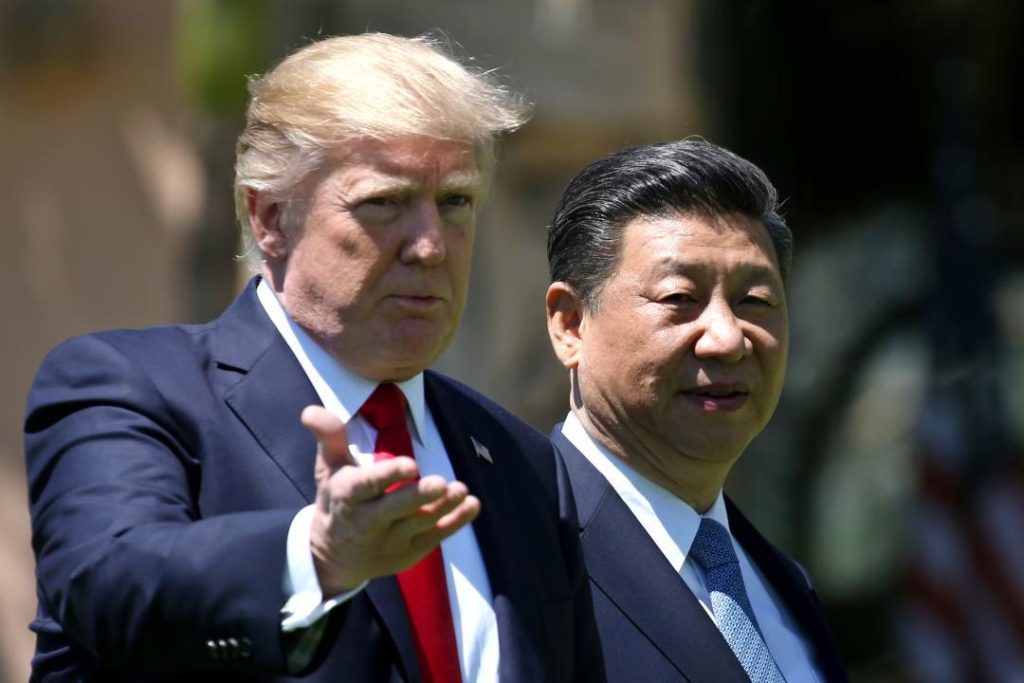
Trump to Allow 6,00,000 Chinese Students in US Amid Tariff Talks
In a significant development, US President Donald Trump has announced that the US will permit the entry of 6,00,000 Chinese students, reversing earlier visa restrictions targeting Chinese nationals tied to the Communist Party or sensitive research. The move comes amidst ongoing tariff talks between the US and China.
The decision is seen as a step towards improving US-China relations, despite the ongoing trade tensions and tariffs imposed by both countries. Trump emphasized his interest in meeting Chinese President Xi Jinping later this year to discuss trade and other issues.
The earlier visa restrictions were put in place in May 2020, aimed at preventing Chinese nationals from accessing sensitive research and technology in the US. The restrictions were seen as a response to China’s growing influence in the world and concerns over the country’s espionage activities.
However, the latest move suggests that the US is willing to ease its stance on Chinese students and scholars, provided that they meet certain criteria and are not tied to the Communist Party or sensitive research. The US has long been a popular destination for Chinese students, with over 350,000 Chinese nationals currently studying in the country.
The relaxation of visa restrictions is seen as a positive development for both Chinese students and US universities, which have been affected by the earlier restrictions. Many universities had expressed concerns over the impact of the restrictions on their international student populations and the potential loss of talented students.
The decision is also seen as a sign of the US’s willingness to engage with China and address the trade tensions through dialogue. Trump has been critical of China’s trade practices and has imposed tariffs on billions of dollars’ worth of Chinese goods. However, the latest move suggests that the US is willing to take a step back from its aggressive stance and engage in talks to resolve the trade dispute.
The relaxation of visa restrictions is also seen as a response to China’s own efforts to improve its relations with the US. China has been taking steps to address US concerns over its trade practices and intellectual property theft, and the relaxation of visa restrictions is seen as a gesture of goodwill.
The decision has been welcomed by many in the education community, who see it as a step towards improving US-China relations. “This is a positive development for international students and scholars, and for US universities,” said a spokesperson for the Association of International Education Administrators. “We hope that this decision will pave the way for further cooperation between the US and China in the field of education.”
The decision is also seen as a boon for US universities, which have been struggling to attract international students in recent years. The relaxation of visa restrictions is expected to attract more Chinese students to the US, which could help to boost enrollment numbers and revenue for universities.
However, the decision has also been criticized by some, who see it as a concession to China’s growing influence in the world. “This decision is a mistake,” said a spokesperson for the National Association of Scholars. “It sends the wrong message to China and risks compromising US national security.”
Despite the criticism, the decision is seen as a step towards improving US-China relations, and a sign that the US is willing to engage with China through dialogue. As Trump emphasized, the relaxation of visa restrictions is just one part of a broader effort to improve relations with China. “We’re going to have a great meeting with President Xi,” Trump said. “We’re going to talk about trade, we’re going to talk about a lot of things, and I think it’s going to be a very successful meeting.”



